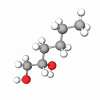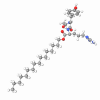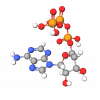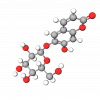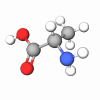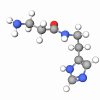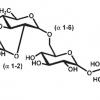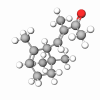Sensitive skin is often defined by a propensity to sensory responses such as stinging, itching, burning, or visible reactions, such as erythema, papules or vesicles, wheal and flare responses, dryness, scaling, and desquamation, in response to external stimuli. It is hypothesized that various conditions induce the symptoms of sensitive skin, such as environmental factors (pollution), physical factors (UV, heat, cold), psychological factors (stress, emotion), or hormonal factors (menstrual cycle).
Recent studies indicate that well over half of the population consider themselves to have sensitive skin, with about one-third perceiving that their skin is getting more sensitive. Although there is a widespread nature of sensitive skin, a single definition of this condition remains elusive.
Two primary reasons may be responsible for the symptoms occurring in sensitive skin; an increased permeability of the stratum corneum (low barrier function) or an acceleration of nerve responses (inflammatory changes). A thinner stratum corneum causes a higher transcutaneous penetration which makes it more susceptible to chemical irritation.
Impaired skin barrier function, together with an increase in trans-epidermal water loss (TEWL) has been hypothesized to underline skin sensitivity. In addition, neurosensory dysfunction of nerves in the skin underlies the altered sensations. The sensory receptors are not only expressed in nerve endings but also in keratinocytes, which may explain why sensitive skin responds to different environmental, physical, and chemical factors limited to the skin.Capryloyl Pentapeptide-26 represents the most effective active ingredient for irritated and sensitive skin. It greatly reduced inflammatory cytokine expressions and productions In vitro, especially IL-1α, IL-8, and TNF-α, the three most important cytokines that have been known to cause skin irritation. Capryloyl Pentapeptide-26 is also clinically proven to reduce skin inflammation and irritation.
Is there proof of efficacy for Capryloyl Pentapeptide-26?
In vitro tests were performed on human keratinocytes to prove how Capryloyl Pentapeptide-26 effectively reduces inflammatory cytokines (IL-1α, IL-8, and TNF-α) that cause skin irritation. In in-vitro tests, two powerful stimulants, UV and neuropeptide substance P, were used.
In a clinical study conducted on 32 healthy Asian female volunteers, aged 29 to 60, a local inflammation was created on the inner arm by the application of a patch containing sodium lauryl sulfate (SLS) with or without a cream containing 2% DermaPep™ A530. Dermatological evaluation (erythema, edema, and scaling), chronometry, and trans-epidermal water loss were used to measure the skin inflammatory reaction. Capryloyl Pentapeptide-26 significantly decreased the skin redness.
TEWL (Trans-Epidermal Water Loss) is one the most important parameters to evaluate the epidermal permeability barrier function of the skin. A low TEWL is generally a characteristic feature of an intact skin function. Thus, irritating agents compromising the skin barrier increase transepidermal evaporation.
A Maximum TEWL value was obtained at 24 hours after the treatment of SLS and DermaPep™ A530 greatly reduced the Trans-Epidermal Water Loss (TEWL).The clinical test was performed on 16 volunteers (Korea), aged 24 to 56, who have severe dry and sensitive skin including pathological skin conditions such as atopic or contact dermatitis. A 2% formula containing Capryloyl Pentapeptide-26 has been applied once daily in the evening for 28 days. This ingredient was proven to greatly suppress the itching sensation and to provide excellent soothing and calming effects.
